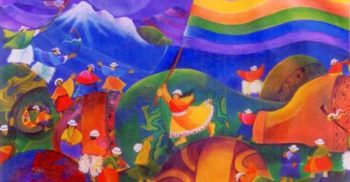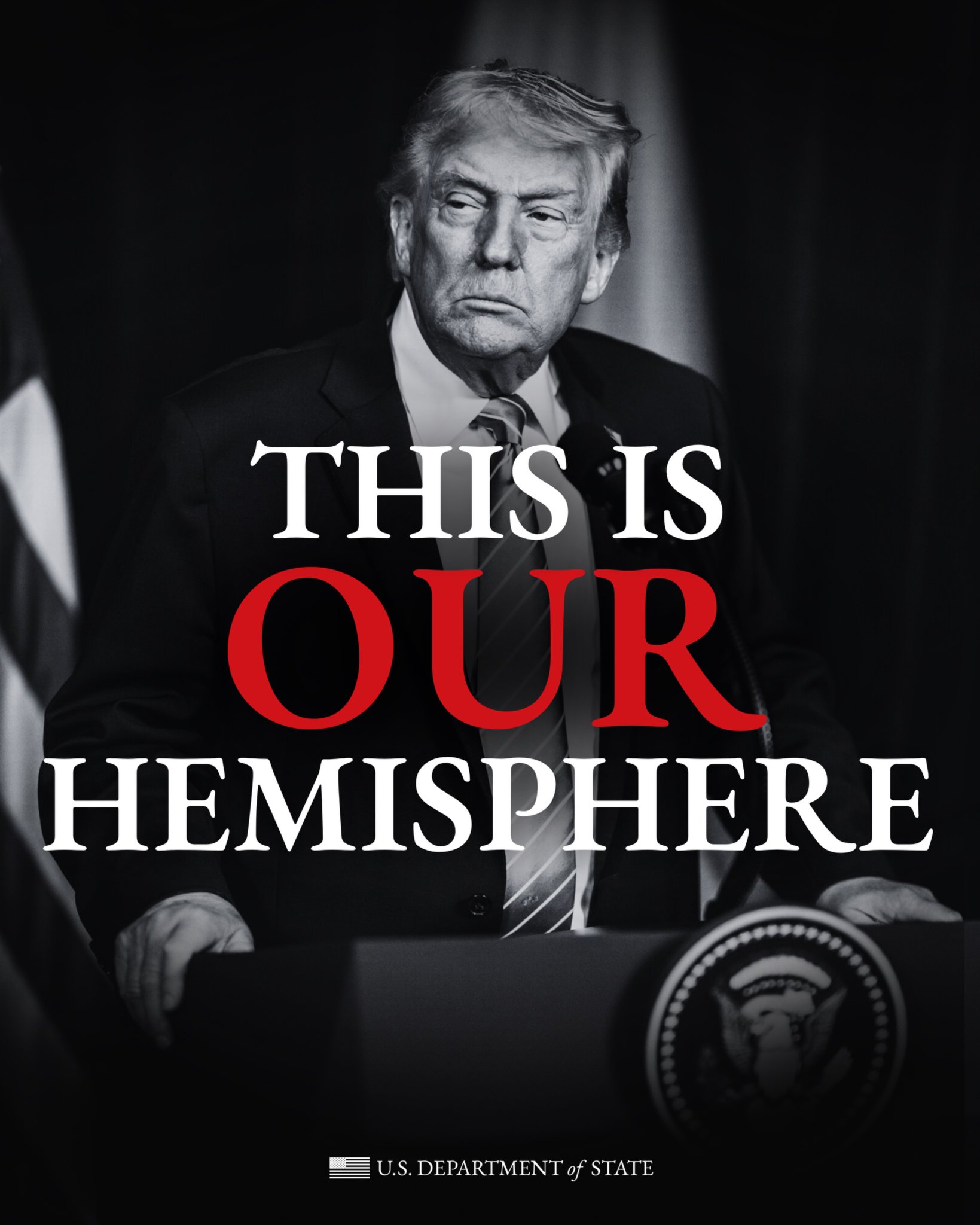 As the borders drawn from above harden, resistance from below begins to converge like underground rivers.
As the borders drawn from above harden, resistance from below begins to converge like underground rivers.
This is how Patagonia – that distant and almost mythical land for most of the population of the planet- became a strategic battlefield in the struggle between the preservation of life and the forces of death that we face today.
The largest and purest reserves of water on earth are found in Patagonia, frozen in glaciers and flowing in its rivers and lakes, both on the Chilean side and in the part located in southern Argentina. There are also large forests and a vast range of biodiversity. The region is also an important barometer of climate change and, properly managed, a tool for slowing its advance.
Patagonia is the ancestral territory of the Mapuche people, and now it’s the subject of dispute due to the incursions of large transnational corporations and the super rich. Extractive megaprojects, such as hydroelectric dams and mining, and the privatization of their territory to turn it into a refuge for magnates, threaten the future of the people who have been the guardians of the land in this remote part of the world.
“We’re recovering the territory because unfortunately, in the case of the Mapuche people, we live in a paradise that is the temptation of large corporations and famous billionaires who are stretching their tentacles into our territory,” says Moira Millán, weychafe, or defender of the Mapuche people and member of the March of Original Women.
Although the organization and repression of the Mapuche in Chile is more widely known, the Mapuche in Argentina have mobilized to defend their territory since the end of the 19th century, when the government launched “The Conquest of the Desert” that sought to expel them and deprive them of their lands and resources. Then, in the 1990s, the government promoted the sale of their lands at ridiculous prices, as if the indigenous communities living there—and their rights–did not exist.
Among the buyers are the Italian sweater company of the global brand Benetton that bought almost one million hectares of ancestral lands, the actor Silvestre Stallone, the financier George Soros and other members of the rich and famous jet set who now own entire lakes and mountains for their private use.
Argentina’s current government under Macri has waged a particularly fierce fight against the indigenous peoples, with assassinations – like the most recent one of Rafael Nahuel at the hands of the police -, political prisoners and the criminalization of land defenders.
Moira Millán faces the charge of “aggravated coercion”, for her participation in a peaceful demonstration. On June 27, she was detained by the police at the Buenos Aires airport in an act of persecution clearly linked to the repression of the movement. Now she faces a court order to appear on September 19 for a hearing. She is targeted because she is a strong a leader and an indispensable voice for the liberation of her people and her territory, fighting for all rights, as an indigenous Mapuche, a woman and a mother.
“The territory of our body and the physical territory we live in are indivisible for us. The cruelty against us comes from the weakness of the capitalist and patriarchal system, ” she said in a March 8 statement for International Women’s Day. Her organization, the March of Women, defends this integrated vision with the slogan of “Free determination for our territory, our peoples and our bodies”.
Millán is also an internationalist who has traveled all over the world to talk about the struggle of the Mapuche people. Now she´s forced to mount a global campaign for her own freedom with the hashtag #ReclamarJusticiaNoEsUnDelito.
It’s no coincidence that Moira faces false charges to stop her from organizing now. The First Parliament of Original Women last April launched a ground-breaking campaign called “Plurinational Women Unite” (Nos queremos plurinacional) . The idea is to bring a proposal to the 33th National Meeting of Women in Trelew, province of Chubut, in October 2018, for the full inclusion of indigenous women. If this proposal passes at the meeting held in Mapuche territory, it would be an historic convergence between the women’s movement and the indigenous movement, to build – in the words of organized indigenous women – a more democratic movement, with an anti-systemic perspective and a vision of “living well” or buen vivir.
Many fences will have to come down to build that dream. It’s about uprooting the fences of privatized lands, breaking down barriers to the media, and erasing the borders that keep liberation movements separate, the internal and external ones that divide us and seek to obstruct our work. This kind of real convergence of struggles is the only possibility we have of saving the planet and ourselves.
The Movement of Indigenous Women for Living Well states, “Our struggle as indigenous women in unity does not end with the liberation of political prisoners, but with the liberation of our territories. We’ve seen centuries of resistance; no government has been able to break us.”
Now other women’s organizations and people’s movements in general should recognize in their resistance a critical route for protect life, which is the thread that binds us all.
To join the campaign for the acquittal of Moira Millán, contact: Press: Evis Millán +5492915745857. Mail:originariasporelbuenvivir@gmail.com FB: Movimiento de Mujeres Indígenas por el Buen Vivir



